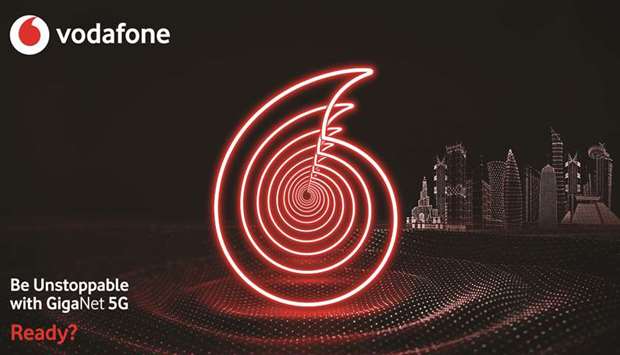Driven mainly by higher EBITDA, Vodafone Qatar posted a half-yearly net profit of QR81mn, up 4% year-on-year.
Service revenue grew by 3.4% to reach QR1bn while total revenue increased by 1% to QR1.1bn, driven by the continued growth in postpaid and higher home broadband revenue, Vodafone Qatar announced yesterday.
EBITDA (earnings before interest, taxes, depreciation, and amortisation) for the period stood at QR390mn; representing a “strong” improvement of 9% year-on-year, positively impacted by higher service revenue, continued cost optimisation initiatives, lower equipment cost and the reduction in mobile termination rates.
EBITDA margin further improved by 2.6 percentage points to reach 36.3% in H1, 2020.
In response to the coronavirus pandemic, Vodafone Qatar was quick to activate its business continuity measures, which has proved vital in minimising operational disruptions.
The company has continued to fully deliver services and products to all of its customers, thereby facilitating remote work, learning and other digital needs.
Vodafone Qatar has remained focused on executing its defined strategy to support the continuation of the current growth trajectory of the company. This includes expanding its ‘GigaNet’ network by accelerating the deployment of fibre and 5G in several strategic locations across the country.
Throughout, the health and safety of Vodafone Qatar’s employees and customers has been the company’s “first priority”.
Vodafone Qatar said it was “one of the first” to switch to operating in a ‘digital’ mode, with currently more than 80% of its staff equipped and working remotely.
Stringent health and safety regulations have been implemented in all Vodafone stores and safety measures are being taken in its offices.
The company has also rallied behind national initiatives and supported the most vulnerable communities as part of its corporate social responsibility.
Amongst those, all data usage charges have been removed for using EHTERAZ, Qatar’s Covid-19 risk detector app. The children of The Orphan Care Centre (Dreama) and the Protection and Social Rehabilitation Centre (AMAN) were provided with high-speed 5G Internet, laptops and tablets to support their online learning.

Vodafone Qatar’s service revenue grew by 3.4% to reach QR1bn while total revenue increased by 1% to QR1.1bn, driven by the continued growth in postpaid and higher home broadband revenue
